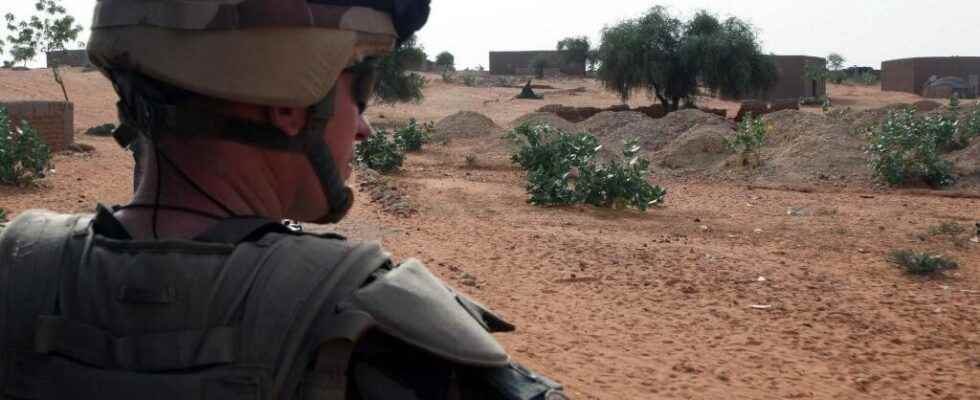Just ten years ago, the French army went to war in Mali. It was on the night of January 10 to 11, 2013, the start of Operation Serval. Paris was responding to the urgent request of the Malian transitional President at the time, Dioncounda Traoré, to stem the progression of AQMI jihadists and their allies in the center of the country. The beginning of a long and chaotic story, since the French army remained in Mali for a long time and massively before leaving the country in a hurry, pushed towards the exit by the new authorities of the country. And by a national and regional context that has evolved.
On January 11, 2013, French army planes bombed Konna, near Mopti, which the jihadists had just seized. In the aftermath, the Serval force deploys its armored vehicles and ground soldiers – up to 5,000 men – and recover in less than a month the big cities of the North, occupied for nearly a year by Aqmi (al-Qaeda in the Islamic Maghreb), Ansar Dine and Mujao.
Then the jihadists turn into terrorists, Serval becomes Barkhane. The Malian applause, fervent and unanimous, of the beginnings gradually give way to disappointment, even mistrust.
The French army collaborates with the separatist rebels of Kidal, which it distinguishes from the jihadists, considering that it is a political dispute which opposes them to the government of Bamako – which will be resolved by the peace agreement of 2015, today threatens. The Malian army entered alongside the French army in Gao and then in Timbuktu, but it is not allowed to enter Kidal. An “original sin” in the eyes of many Malians, who will never forgive it. The years pass, many Malians cannot admit that the French force, in spite of its means and significant occasional successes, does not manage to completely destroy the jihadist groups.
Last year, the transitional authorities from the military coup of August 2020 finally push Barkhane towards the exit calling into question the agreements defense agreements signed between the two countries. In the name of national sovereignty, Mali turns to Russia and rejects France, its leaders and its soldiers, who complete their withdrawal during the summer.
For a little over a year, the Malian army has been fighting alongside more than a thousand Russian auxiliaries, Wagner Group mercenaries dearly paid according to most European, African and American countries, mere “instructors” sent by the Russian State according to the Malian transitional authorities, despite the declarations of Russian President Vladimir Putin and his Foreign Minister Sergei Lavrov, who speak of a private company themselves.
The French army remains present in the neighboring Sahelian countries, and will even extend its anti-terrorist system to the coastal countries of West Africa. But the epilogue of his years in Mali and the rise throughout the sub-region of anti-French sentiment – as real as it is exploited – will force him to learn lessons. The end of Barkhane in the Sahel was made official two months ago. The contours of the new system that will succeed it must still be specified, in collaboration with the requesting African countries.
Analysis by researcher Hassane Koné
Mauritanian researcher Hassane Koné is an expert on military issues at the Institute for Security Studies (ISS) in Dakar. He explains why an operation like Serval, acclaimed in 2013 by the Malian population, would no longer be possible today, neither in Mali nor elsewhere.
” In 2013, Mali had no choice. It was necessary to ask for help from France to slow down the jihadist columns which were advancing towards the South. Serval had precisely made it possible to slow down this progression and then to begin the reconquest of the North, which had led to the plebiscite, the popular reception that the French armored vehicles and that the French president (François Hollande, editor’s note) he himself had received on his arrival in Timbuktu and Bamako. But the continuity with Barkhane unfortunately did not succeed in completely eradicating terrorism. There have been very good results, the destruction of many arms caches, many training camps, several katiba leaders, but unfortunately the populations see that until today, the jihadists continue to crack down and occupy huge swaths of the territory. So Barkhane, the French intervention, the intervention of foreign forces, is no longer appreciated in the same way. I think that today, an intervention of this kind, with the deployment of units on the ground, is no longer appropriate. We should perhaps go back to older practices: air support, because these countries (Mali and its Sahelian neighbours, editor’s note) have a great deficit of air vectors, intelligence, and support limited in time. A less strong, less visible, effective military presence, and above all that fills the gaps (the shortcomings, editor’s note) national armies. »
